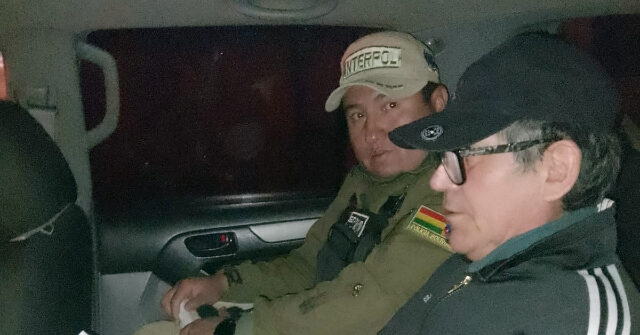Maximiliano Davila-Perez, formerly the Director of the Bolivian Special Forces for the Fight Against Drug Trafficking (FELCN), has been extradited to the United States to face serious federal charges related to his alleged role in a cocaine trafficking operation. He is charged with conspiring to import cocaine into the United States as well as conspiring to use and possess automatic weapons in connection with this drug scheme. The announcement of his extradition by the United States Attorney’s Office for the Southern District of New York marks a significant development in the ongoing battle against drug trafficking, especially considering Davila-Perez’s former high-ranking position that placed him at the forefront of Bolivia’s efforts to combat narcotics crimes.
Davila-Perez garnered notoriety in 2022 when he was arrested while attempting to flee Bolivia for Argentina, following a $5 million reward offered by the U.S. Department of State for information leading to his capture. His tenure as the head of Bolivia’s FELCN began under the regime of former President Evo Morales in 2019. However, Davila-Perez’s actions during this time drastically deviated from the expected accountability and enforcement against drug trafficking; instead, he is accused of collaborating with drug traffickers, leading to significant allegations of corruption and complicity in the very crimes he was meant to fight.
Upon making his initial court appearance in the Southern District of New York, Davila-Perez faced serious accusations of exploiting his position to enable a large-scale drug trafficking operation. Prosecutors allege that he not only diverted important investigative resources away from actual traffickers but also provided armed security for cocaine shipments, effectively turning Bolivia’s anti-narcotics authority into a facilitator of drug trade. His cooperation with substantial cocaine suppliers and their operations within Bolivia reportedly culminated in plans to smuggle over a thousand kilograms of Bolivian cocaine into New York—a staggering quantity that highlights the scope of the ongoing drug crisis.
The timeline of the indictment sheds light on Davila-Perez’s activities following his removal from his official duties in Bolivia. Between November 2019 and February 2020, he and his associates allegedly continued to coordinate cocaine shipments, as evidenced by recorded communications discussing their operations and market competition in New York. A significant event during this period was the successful delivery of a 10-kilogram cocaine sample in Lima, Peru, in December 2019, which authorities allege was part of a larger plan for cocaine trafficking into the United States, all occurring under Davila-Perez’s directive for armed protection.
DEA Administrator Anne Milgram remarked on the gravity of Davila-Perez’s betrayal, emphasizing that someone in his position was expected to combat drug trade but instead perpetuated it. This statement reflects the profound implications of his actions on public safety and the integrity of law enforcement agencies, as it underscores the detrimental effects of corruption within anti-narcotics efforts. As law enforcement agencies endeavor to rectify the systemic failures exposed by Davila-Perez’s case, they are also faced with the broader challenges of addressing drug trafficking, which remains a persistent issue in many regions.
Facing steep charges of conspiring to import cocaine, Davila-Perez could potentially receive a minimum sentence of 10 years in prison, with the possibility of life imprisonment if convicted. The U.S. authorities’ commitment to pursuing this case against a former high-ranking official illustrates their intent to hold accountable those who misuse their positions for criminal gain. As more details of the case unfold, it serves as a reminder of the ongoing struggle against drug trafficking and the crucial need for integrity within law enforcement to effectively combat the pervasive issue of narcotics in society.

